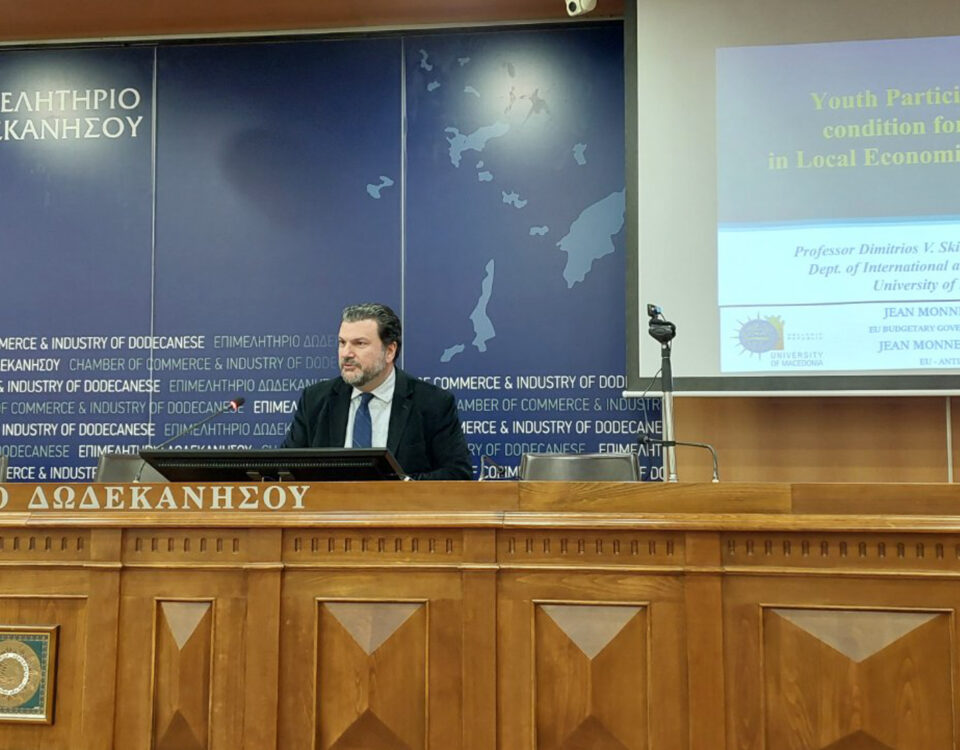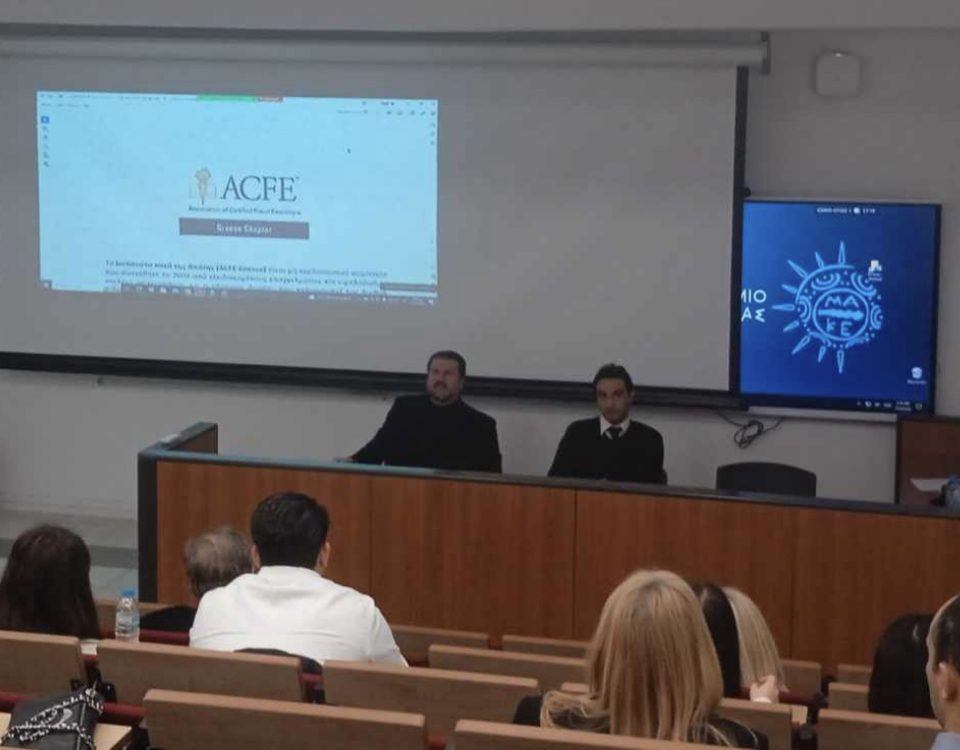Newsletter – December 2020
The tenth Newsletter of the Jean Monnet Chair “EU Budgetary Governance and Audit” focuses on the last quarter of 2021. The culmination of the period was the negotiations for the approval process of the Multiannual Financial Framework (MFF) 2021 – 2027 and the resolution of the stalemate caused by the veto of Poland and Hungary, due to the promotion of a Regulation (along with the legislative package for MFF 2021-2027) on the possibility of imposing cuts in funding from the EU in any country that does not in practice respect the principles of the rule of law, something for which these two countries had been already accused of. An important point on EU affairs, during that period, was the Annual Report of the European Court of Auditors for the financial year 2019 and its findings on the management and efficiency of the European Union budget resources for the financial year 2019. Furthermore, the Newsletter discusses the Special Report 16/2020 of the European Court of Auditors on the European Semester. The main object of audit was the implementation of the European Semester process by the European Commission specifically in terms of achieving the objectives of the "Europe 2020" strategy, the implementation of the relevant country-specific recommendations (CSR), the formulation and follow-up given to them. Another item included in the Newsletter was an examination of the ECA’s Opinion no. 9/2020 on the EU Civil Protection Mechanism (EU – CPM). Based on the principles of subsidiarity and proportionality, the EU - CPM can be used to coordinate aid only when a crisis threatens to exceed a country's capacity to deal with it, as well as in response to a request for assistance - the role of the EU - CPM is to complement the capabilities of states - members and not to replace them. The Newsletter also highlights the Overview No 6/2020 of the European Court of Auditors on the Risks, Challenges, and Opportunities in the EU's response to the COVID-19 crisis in terms of economic policy. By the summer of 2020, Member States had adopted a wide range of short-term fiscal discretion measures to respond to the crisis, in accordance to their wealth. These amounted in around 1,250 budget measures, corresponding to around € 3.5 trillion (27% of the EU-27 GDP for 2020). Finally, with regard to the Chairs’ activities, The Chair published its fifth book, entitled "A Jean Monnet Experience in the University of Macedonia”, which includes a brief overview of the activities of the Chair for the period 2017-2020, highlighting both the dynamics of Jean Monnet's actions in the educational process and the ever-increasing interest of the academic community in the issues of the European Union. Furthermore the Newsletter presents the Chair’s collaboration with the UNESCO Chair of Intercultural Policy of the University of Macedonia on the publication of the collective volume "Right to Education & Educational Policies - International, European & National Dimensions", i.e. a collection of texts by academics and other researchers, specializing in all national, European and international aspects of education policy. At the event level, the Jean Monnet Chair participated in the International Fraud Awareness Week 2020 events, organized by the Association of Certified Fraud Examiners and the Internet Conference organized by the Hellenic-Serbian Chamber of Northern Greece on the financial implications of COVID-19 in the Balkan countries, with interlocutors officials for the relevant Offices of the Greek Foreign Office. Finally, the Chair added five more Notebooks to its Database.Read more here.




